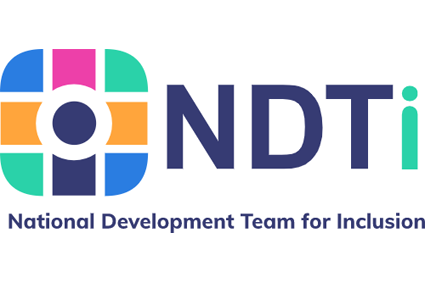Health and care services: Improving physical health for autistic people and people with learning disabilities
If you work within health or care services, there are lots of things to keep in mind when supporting autistic people and people with learning disabilities with their physical health.
There is an urgent need to improve health care of autistic people and people with learning disabilities. National research shows that:
- Autistic people die on average 16 years earlier than the general population and this increases if they also have learning disabilities.
- Men with learning disabilities die 23 years earlier than the general population and for women this is 27 years.
Deaths are mostly from preventable causation and in part due to physical health needs being overlooked (including through “diagnostic over-shadowing”, through which symptoms of physical ill health that are mistakenly attributed to the person’s learning disabilities.)
GP surgeries, pharmacists, hospital teams, secondary care health services, social workers and social care providers, voluntary sector organisations, and other health and care services all have an important part to play in supporting and empowering autistic people and people with learning disabilities to improve their physical health.
To help you do this, these pages provide some information below (including about reasonable adjustments and health checks) and resources towards the bottom of the page (including specific links about topics such as vaccination and oral health).
We have included information about supporting autistic people and supporting people with learning disabilities. However, it is important to remember that autism and learning disabilities are not the same thing. Autistic people can have any level of intelligence – some autistic people have average or above average intelligence, whereas some autistic people have a learning disability.
We have also co-designed some pages for autistic people and some for people with learning disabilities, and their family or carers, to help people improve their own physical health – you can signpost your patients/clients to these pages:
Reasonable adjustments
Health and care workers need to make it as easy for disabled people to use services as it is for people who are not disabled. This is called making ‘reasonable adjustments’.
You can help to make sure you consistently make reasonable adjustments by recording and “flagging” the reasonable adjustments required by your autistic patients and patients with learning disabilities (E.g. using digital flags or the summary care record).
Learning disabilities
When working with people with learning disabilities, it can be helpful to bear in mind:
- A learning disability is a reduced intellectual ability and difficulty with everyday activities – for example household tasks, socialising or managing money – which affects someone for their whole life.
- The definition encompasses people with a broad range of disabilities. It includes adults with autism who also have learning disabilities, but not people with autistic spectrum disorder who may be of average or above average intelligence. The definition does not include all those people who have a “learning difficulty”, e.g. specific difficulties with learning, such as dyslexia.
People with learning disabilities may be nervous about visiting the doctor or other appointment, so it’s also important to spend extra time on making sure they are comfortable:
- Make sure you explain what the appointment will involve so nothing unexpected happens
- Let them ask questions
- Check they understand
- Ask them if there is anything else you can do for them
- Allow a carer/supporter to attend appointments if needed
Some of the things you can do to help your patients with learning disabilities include:
- Make sure you have effective reminder, recall and ‘safety netting’ systems in place.
- Consider the specific reasonable adjustments needed by individual patients.
- Remember that some people with learning disabilities may need additional help to book appointments, especially when it can be difficult for them to get through to make the appointment, for example at times when GP practices are experiencing a high volume of calls. Please also remember that not everyone is digitally enabled, and although online booking can be a good solution for some people, it won’t work for everyone.
- Work with family/unpaid carers and (paid) care providers to help ensure people are given the support they need to attend health appointments
- Make sure they are on the GP learning disability register
- Offer everyone on the learning disability register an Annual Health Check (for patients aged 14 and above), including people with a mild learning disability Health checks (and subsequent health action plans) in primary care are effective in identifying – and treating – previously unrecognised health needs, including those associated with life-threatening illnesses. There is more detailed guidance on health checks in the resources/links section.
- During the Annual Health Check, work with your patient to do a Health Action Plan.
- Consider mental capacity of the person, including in relation to non-attendance of appointments (e.g. was it a ‘did not attend’ or a ‘was not brought’?) and best interest decisions.
- GP surgeries can contact Sheffield NHS Clinical Commissioning Group for more information and guidance for GP practices
- Email: sheccg.mhldportfolio@nhs.net
- Press Portal (see learning disability and autism sections)
How can social care or voluntary sector providers help with annual health checks and other health appointments?
You won’t be responsible for carrying out the health check or the appointment, but depending on your role, you still have an important part to play in – for example:
- If the person’s doctor hasn’t contacted them about their annual health check, you could support the person to contact their surgery and book the appointment
- Encouraging and supporting the person to attend their health check
- Encouraging and supporting with any follow up actions from the health check (e.g. health actions such as taking more exercise or taking up support to reduce or quit smoking)
Autism
When working with autistic patients, it can be helpful to bear in mind:
- Autism is a spectrum. This means everybody with autism is different. Some autistic people need little or no support. Others may need help from a parent or carer or support worker every day.
- Being autistic does not mean you have an illness or disease. It means your brain works in a different way from other people.
- Make sure you have effective reminder, recall and ‘safety netting’ systems in place.
- Remember that some autistic people may need additional help to book appointments, especially when it can be difficult for them to get through for example at times when GP practices are experiencing a high volume of calls.
- Work with family/unpaid carers and (paid) care providers to help ensure people are given the support they need to attend health appointments
- To ensure equitable access, adjustments for autism specific needs are as necessary as ramps for wheelchair users. The leaflet and video below include more examples and information about this, including about:
- Not making assumptions about what autistic people need – the best way to find out is to ask!
- Communication – for example, take your time explaining things as too much information can be overwhelming. Bear in mind eye contact can be difficult for autistic people.
- Sensory difficulties – for example, consider that health appointments can be intense for autistic people. Sensory processing differences affect most autistic people, and is a common cause for heightened distress in health services settings.
This video has been co-designed with local autistic adults and their families, and with health and care staff working in Sheffield. It offers some guidance about you can make your health and care services more autism friendly and help to reduce the significant health inequalities faced by autistic people.
There is a leaflet which accompanies the video, which offers further guidance on making your service autism friendly. This has been produced by the Sheffield Autism Network lead.
This video provides a Sheffield family carers perspective on the importance of making good reasonable adjustments for autistic people and people with learning disabilities.
Support for (unpaid) carers in Sheffield
If you work in health or social care, there are many ways in which you can support carers of people with learning disabilities and autistic people. Many carers do not think of what they do as being a carer – they see their role simply as looking after a loved-one and many of them are ‘hidden’ and do not know that support is available for them. You can help by being proactive in identifying carers.
Sheffield Carers Centre offers a range of support and information services to all unpaid adult carers in Sheffield looking after a family member or friend who is frail, or has a disability, illness, or mental health problem.
Find out more about referring or signposting people for support: https://www.sheffieldcarers.org.uk/referral-guidance
Autism and physical health
Learning from lives and deaths – People with a learning disability and autistic people (LeDeR)
Learning Disability annual health checks
Vaccination guidance
Oral Health Care

Video: NHS Sheffield CCG:
Mouth care for people with learning Disabilities: Making Reasonable Adjustments (Dental Services)

Mouth care for people with learning disabilities: Cleaning Dentures

Video: NHS Sheffield CCG
Mouth care for people with learning disabilities: Brushing your Teeth
Other learning disability health resources

A campaign and resources for health professionals around supporting people with learning disabilities in hospital
Other information and resources

This page was co-produced, last updated: 03/10/23

















